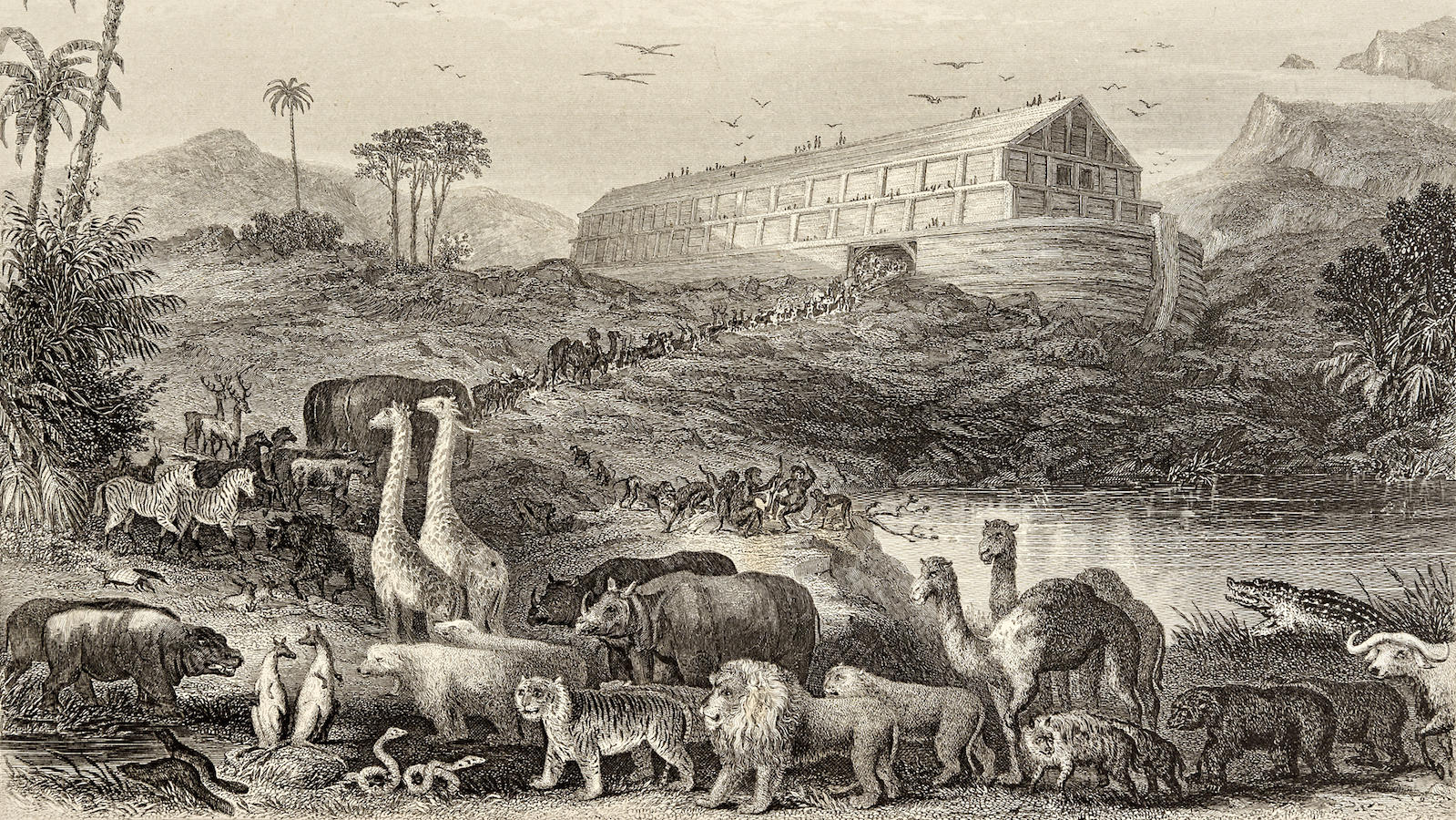Commentary on Parashat Noach, Genesis 6:9-11:32
Secular scholars speak of the story of the flood as if it were a myth, or a fairy tale. Not surprisingly, several ancient documents report striking parallels to the story of the flood.
Perhaps, the most famous document is the Babylonian “Epic of Gilgamesh,” which tells the story of a man by the name of Utnapishtim. The gods decide to destroy the earth, there is a great flood, and because Utnapishtim is the favorite of one of the gods, Eau, he is saved.
Gilgamesh and Noah
Despite the parallels between the “Epic of Gilgamesh” and the ’s story of Noah, they are strikingly different. In the Babylonian story, the gods arbitrarily decide to destroy the earth as if it were a plaything. Furthermore, the gods choose to save Utnapishtim only because he is a “favorite” of theirs, not because he is worthy of being saved.
In Parshat Noah, however, there is a moral imperative. The world is flooded not because God arbitrarily decides to destroy the world, but because it had become corrupt and destructive. Noah is not arbitrarily saved. He is deserving. He is a “righteous man, perfect in his generation. With God, Noah walked” (Genesis 6:9).

Help us keep Jewish knowledge accessible to millions of people around the world.
Your donation to My Jewish Learning fuels endless journeys of Jewish discovery. With your help, My Jewish Learning can continue to provide nonstop opportunities for learning, connection and growth.
But the flood changed Noah. After a year on the , Noah is finally commanded by God to leave. A normal person would have been jumping out his skin to get out of the ark. But Noah is hesitant to leave. Why?
The First Survivor
Elie Wiesel, the great writer, offers a poignant insight. Wiesel calls Noah the first “survivor.” The world had experienced a Holocaust, and Noah was reluctant to walk out of the ark because he knew that the entire world was one giant graveyard for all the people he had known–and he just couldn’t face it.
Once on dry land, after giving thanks to God and bringing sacrifices, the Torah tells us that Noah’s reaction to the flood is to plant. Planting after a great destruction is surely a meaningful and satisfying response. It represents hope and belief in the future.
But what does Noah plant? He plants a vine and drinks the wine of the vineyard. He becomes drunk and wallows in the muck in his tent. Poor Noah. He cannot face the fact that everybody except himself and his immediate family was destroyed in the flood. He is unable to face reality. He needs an escape and resorts to alcohol. He becomes a drunkard.
Noah’s response to the flood is not dissimilar to the reactions of some Holocaust survivors in our own generation. Some survivors were just not capable of facing the fact that they were singled out to live, while their beloved friends and relatives, mothers, fathers, sons, and daughters had been murdered.
What is the reaction of those who behold Noah in this desperate state? The Torah tells us that Noah had three sons: Sheim, Cham, and Yefes.
Noah’s Sons
Cham “saw [Noah’s] nakedness” and told his two brothers outside. Our Sages note that this expression has sexual connotations, and, in fact, Cham did not just mock is father; he sodomized or castrated him.
Sheim and Yefes respond to Cham’s claim by taking a cloak and walking backwards into Noah’s tent, so that they would not see their father’s nakedness. They took the cloak and covered him.
When Noah awoke from his stupor, he knew what his youngest son, Cham, had done to him. Noah cries out, “May Canaan be cursed.” Oddly enough, Noah doesn’t curse his own son, Cham, but Cham’s son, Canaan. “He will always be a slave to his brothers.”
Very intriguing. Why does Noah curse his grandson and not his son?
Perhaps it is because, of all the children, Cham was the only one who was himself a father. Cham should have been aware of how difficult it is to be a parent. Of all the children, Cham should have been most sensitive to Noah’s plight. Yet he was the least sensitive!
Noah says, if that’s the way you behave, if that’s the model you intend to provide for your children, if you respond to a person in need by acting insensitively, the end result will inevitably be that your own child, Canaan, will be a slave. Just like you, he will be unable to control himself. He will be a slave to his own passions and needs.
The story of the flood is not at all a myth. It is a narrative replete with endless fascinating insights, as is the entire Torah. All we need do is study and review it, and in it we shall find the secrets of all human life and human relations.
Provided by the Orthodox Union, the central coordinating agency for North American Orthodox congregations.



